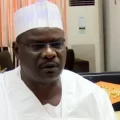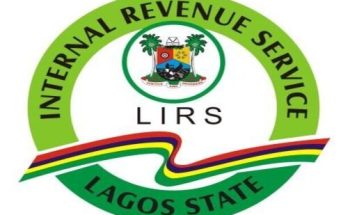Photo: BusinessDay
By Ejiofor Toochi
Edited by Ezennia Uche
In recent years, Nigeria’s healthcare sector has drawn global attention, not for groundbreaking advances, but for the persistent challenges that continue to weigh it down.
Nigeria currently ranks among the countries with some of the weakest healthcare systems globally. Despite being Africa’s most populous nation, the country allocated only 4.33% of its GDP to healthcare. This falls significantly short of the 15% target set under the 2001 Abuja Declaration, where African Union member states, including Nigeria, pledged to dedicate at least 15% of their annual budgets to health.
This underfunding has far-reaching consequences: it limits the development of hospitals, the procurement of essential medical equipment, and the training and retention of skilled health professionals. For a nation struggling with widespread poverty and unemployment, the outcome is dire; public health delivery remains weak, and millions of Nigerians lack access to quality care.
The financial neglect of the sector also reflects in how medical professionals are treated. According to Yahoo Finance, Nigeria ranks as the third-worst country in the world for doctor pay. Findings further show that doctors in private hospitals earn significantly more than their counterparts in public service. This pay disparity, coupled with poor working conditions, has fueled discontent within the profession.
The result is a worsening brain drain. Earlier this year, the Federal Government disclosed that over 16,000 Nigerian doctors have emigrated in the past five to seven years, seeking better opportunities in the United Kingdom, the United States, Canada, Ireland, and Germany. The country’s doctor-to-population ratio has now fallen to 3.9 per 10,000 people, well below the WHO’s recommended threshold.
This crisis has also manifested in repeated industrial actions. In July 2025, Nigerian nurses staged a nationwide strike demanding higher wages, revised professional allowances, and better working conditions. Union leaders described the action as long overdue, citing decades of government neglect. Just two months later, in September, the Nigerian Association of Resident Doctors (NARD) declared a warning strike, echoing similar frustrations.
Strikes are not new in Nigeria’s health sector. Over the years, medical associations have repeatedly downed tools over poor pay, unpaid salaries, and inadequate funding. While negotiations often result in temporary truces, health workers say unfulfilled promises have eroded trust in government commitments.
The health sector struggles with insufficient personnel and resources, further weakening service delivery and worsening public health outcomes. Unless decisive reforms are made, including adequate funding, fair pay, and investment in infrastructure, Nigeria’s healthcare system risks falling deeper into crisis.








